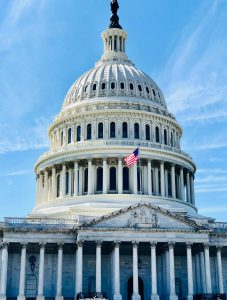
Looking at any international issue, from security to economic development to climate change, and the conversation eventually turns to the Sino-American rivalry. Will the U.S. maintain its status as the sole global superpower, or has the world power structure morphed into a bipolar or multipolar construct? Does China’s rise inevitably mean America’s decline? What are the implications of Beijing becoming a great power? Will this rivalry increase economic interdependence or trigger protectionism? Will economic and ideological competition inevitably lead to military conflict? How should other nations respond to growing tension between Beijing and Washington?
These are but a few of the questions policymakers, journalists, the business community, and analysts are contemplating. The answers to these questions vary considerably, and are often colored by political calculations and, in 2024, election-year politics. But make no mistake, how the U.S.-Chinese relationship evolves is crucial to understanding the future of global politics, security, and economics.
On February 28, Global Perspectives & International Initiatives (GPII) is honored to host Max Baucus, who served as U.S. Ambassador the China from 2014-2017. Baucus represented Montana in the U.S. Senate from 1978-2014. He chaired the powerful Senate Finance Committee, which has jurisdiction over trade policy, for seven years. We look forward to the conversation with Amb. Baucus, and hope he can provide us with insight about China and the future of our relationship with this critically important nation.
Baucus currently heads the Max S. Baucus Institute at the University of Montana and maintains close ties to China. The Baucus Institute sponsors student scholarships to China, facilitating people-to-people diplomacy. It does so because, “there is an increasing need for experts familiar with the ever-changing nature of the Chinese economy and Chinese political and legal systems to provide advisory services to businesses and policymakers.” Baucus has likened the U.S.-China relationship to an “arranged marriage” where each partner is trying to find ways to accommodate each other while still protecting their own interests. Neither country is going anywhere, and he does not believe conflict is inevitable. Thus, mutual understanding is critically important.
Taiwan has long been a point of friction between Washington and Beijing. When U.S.-Chinese relations were normalized by Jimmy Carter, Washington downgraded relations with Taipei. But U.S. support of the “one China” policy was coupled with Chinese promises of a diplomatic solution and continued American military support for and economic ties with Taiwan.
In January, Lai Ching-to of the Democratic Progressive Party won the Taiwanese presidential election. Lai and his party are supportive of Taiwanese independence, which causes considerable heartburn in Beijing. There has been speculation about whether Lai’s win could prompt Chinese President Xi Jinping to invade the island. However, forecasts of imminent war diminished because the election actually produced a split verdict. The Kuomintang (KMT), which favors a less confrontational approach to relations with the mainland, retained control of parliament.
Vietnam, Ukraine, North Korea, India, Afghanistan, the Middle East, and Africa – wherever one looks, there is considerable discussion of how U.S.-Chinese relations influence events and relations. But the biggest variable, even beyond China’s military buildup and America’s military supremacy, is economic. The U.S. and China, respectively, are the two largest economies in the world, and trade between the two amounts to $760 billion per year. Washington and Beijing compete for trade partners, and increasingly offer competing economic development models for potential allies.
There are disputes large and small over trade barriers, intellectual property, and a range of economic policies. But in the end, the nations must find a way forward, hopefully without resorting to armed conflict, a mutually damaging trade war, or slipping into a fridged cold war that divides the world into opposing camps at a volatile time in world history. We look forward to hearing from Ambassador Baucus and doing our part to promote understanding of China, and how the relationship with our chief strategic competitor will shape our collective future.